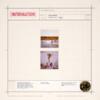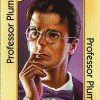-
Posts
571 -
Joined
-
Last visited
-
Days Won
5
Reputation Activity
-
 New England Nat got a reaction from VAZ in On Reading Effectively in Graduate School
New England Nat got a reaction from VAZ in On Reading Effectively in Graduate School
There are many many strategies for this. The only piece of universal advise I will give is that you can not read every word but you should turn every page. As for me... when I was in course work I read every word of the introduction, the conclusion, I than looked at the notes to see what kind of sources the author used. In part this is to decide if he or she could possibly reach the conclusions they do using those sources (this turns out to be a surprisingly easy way to spot massive problems in books). I than pick a couple of chapters that seem most interesting or like they are key to why the book was assigned.
If chapters are repetitive, pick one. Nature's Metropolis for example has three commodities chapters which are brilliant but for the sake of a grad seminar you really only need one to get the argument.
Some people read the first sentence of every paragraph, which can work, but I don't use that very often.
It may seem like a waste, but at least skim acknowledgements, after a bit you'll learn to read a lot into academic family trees. Learn to read pictures and maps critically. Are they there just for the sake of being there or are they part of the argument. Hint, if they're not captioned well it's not a good sign for the book.
Articles will always take longer to read than the equivalent number of pages in a book. They have to be read more closely. Just the nature of the beast.
As for reading loads.... my masters program (respectable state school, not big name), was 1 book per week plus 1 article. My phd program (ivy, big name), is between 1-2 books per week or the equivalent number of pages in articles but rarely both that many articles plus a monograph.
In my experience "Reading" for course work, "Reading" for comps, and Reading for your own research are all very different and what I just said applies to course work.
For comps it's read the book until you get it and put it down. In my program comps lists can be up to 250 books. You can't spend a lot of time with anything and you learn to be super efficient. It was my experience that books I really liked in comps I really had to have the discipline to put down. If I liked it I had gotten the argument.
-
 New England Nat got a reaction from dr. t in Crucial Theory for Historians
New England Nat got a reaction from dr. t in Crucial Theory for Historians
I'm surprised it hasn't been mentioned. Bruno Latour is all over history of science, environmental history and history of medicine. I'm not a theory heavy person and I use Latour. But I'm also very fond of Ludwig Fleck, but most of the time when I'm using theory it's about knowledge transfer and how knowledge communities are formed.
-
 New England Nat got a reaction from Assotto in On Reading Effectively in Graduate School
New England Nat got a reaction from Assotto in On Reading Effectively in Graduate School
There are many many strategies for this. The only piece of universal advise I will give is that you can not read every word but you should turn every page. As for me... when I was in course work I read every word of the introduction, the conclusion, I than looked at the notes to see what kind of sources the author used. In part this is to decide if he or she could possibly reach the conclusions they do using those sources (this turns out to be a surprisingly easy way to spot massive problems in books). I than pick a couple of chapters that seem most interesting or like they are key to why the book was assigned.
If chapters are repetitive, pick one. Nature's Metropolis for example has three commodities chapters which are brilliant but for the sake of a grad seminar you really only need one to get the argument.
Some people read the first sentence of every paragraph, which can work, but I don't use that very often.
It may seem like a waste, but at least skim acknowledgements, after a bit you'll learn to read a lot into academic family trees. Learn to read pictures and maps critically. Are they there just for the sake of being there or are they part of the argument. Hint, if they're not captioned well it's not a good sign for the book.
Articles will always take longer to read than the equivalent number of pages in a book. They have to be read more closely. Just the nature of the beast.
As for reading loads.... my masters program (respectable state school, not big name), was 1 book per week plus 1 article. My phd program (ivy, big name), is between 1-2 books per week or the equivalent number of pages in articles but rarely both that many articles plus a monograph.
In my experience "Reading" for course work, "Reading" for comps, and Reading for your own research are all very different and what I just said applies to course work.
For comps it's read the book until you get it and put it down. In my program comps lists can be up to 250 books. You can't spend a lot of time with anything and you learn to be super efficient. It was my experience that books I really liked in comps I really had to have the discipline to put down. If I liked it I had gotten the argument.
-
 New England Nat got a reaction from knp in On Reading Effectively in Graduate School
New England Nat got a reaction from knp in On Reading Effectively in Graduate School
There are many many strategies for this. The only piece of universal advise I will give is that you can not read every word but you should turn every page. As for me... when I was in course work I read every word of the introduction, the conclusion, I than looked at the notes to see what kind of sources the author used. In part this is to decide if he or she could possibly reach the conclusions they do using those sources (this turns out to be a surprisingly easy way to spot massive problems in books). I than pick a couple of chapters that seem most interesting or like they are key to why the book was assigned.
If chapters are repetitive, pick one. Nature's Metropolis for example has three commodities chapters which are brilliant but for the sake of a grad seminar you really only need one to get the argument.
Some people read the first sentence of every paragraph, which can work, but I don't use that very often.
It may seem like a waste, but at least skim acknowledgements, after a bit you'll learn to read a lot into academic family trees. Learn to read pictures and maps critically. Are they there just for the sake of being there or are they part of the argument. Hint, if they're not captioned well it's not a good sign for the book.
Articles will always take longer to read than the equivalent number of pages in a book. They have to be read more closely. Just the nature of the beast.
As for reading loads.... my masters program (respectable state school, not big name), was 1 book per week plus 1 article. My phd program (ivy, big name), is between 1-2 books per week or the equivalent number of pages in articles but rarely both that many articles plus a monograph.
In my experience "Reading" for course work, "Reading" for comps, and Reading for your own research are all very different and what I just said applies to course work.
For comps it's read the book until you get it and put it down. In my program comps lists can be up to 250 books. You can't spend a lot of time with anything and you learn to be super efficient. It was my experience that books I really liked in comps I really had to have the discipline to put down. If I liked it I had gotten the argument.
-
 New England Nat got a reaction from L13 in Berkeley's arrogance
New England Nat got a reaction from L13 in Berkeley's arrogance
As someone with a quirky research interest... I'd like to point out I think such a limitation would be bad for history in general. I think you are underestimating how much change in scholarship comes from creative minds who wouldn't be able to fit "we're looking for 3 modern Europeanists and 2 latin americanists and 4 americanists and maybe an Africanist." It would also short shift a lot of smaller, less geographically based fields.
-
 New England Nat got a reaction from tenguru in On Reading Effectively in Graduate School
New England Nat got a reaction from tenguru in On Reading Effectively in Graduate School
There are many many strategies for this. The only piece of universal advise I will give is that you can not read every word but you should turn every page. As for me... when I was in course work I read every word of the introduction, the conclusion, I than looked at the notes to see what kind of sources the author used. In part this is to decide if he or she could possibly reach the conclusions they do using those sources (this turns out to be a surprisingly easy way to spot massive problems in books). I than pick a couple of chapters that seem most interesting or like they are key to why the book was assigned.
If chapters are repetitive, pick one. Nature's Metropolis for example has three commodities chapters which are brilliant but for the sake of a grad seminar you really only need one to get the argument.
Some people read the first sentence of every paragraph, which can work, but I don't use that very often.
It may seem like a waste, but at least skim acknowledgements, after a bit you'll learn to read a lot into academic family trees. Learn to read pictures and maps critically. Are they there just for the sake of being there or are they part of the argument. Hint, if they're not captioned well it's not a good sign for the book.
Articles will always take longer to read than the equivalent number of pages in a book. They have to be read more closely. Just the nature of the beast.
As for reading loads.... my masters program (respectable state school, not big name), was 1 book per week plus 1 article. My phd program (ivy, big name), is between 1-2 books per week or the equivalent number of pages in articles but rarely both that many articles plus a monograph.
In my experience "Reading" for course work, "Reading" for comps, and Reading for your own research are all very different and what I just said applies to course work.
For comps it's read the book until you get it and put it down. In my program comps lists can be up to 250 books. You can't spend a lot of time with anything and you learn to be super efficient. It was my experience that books I really liked in comps I really had to have the discipline to put down. If I liked it I had gotten the argument.
-
 New England Nat got a reaction from marte108 in Fall 2015 Applicants
New England Nat got a reaction from marte108 in Fall 2015 Applicants
I would do some patching up and feel the letter writer out on if they would feel comfortable writing a letter for you. If they seem to hesitate, find another professor to form a relationship with. This is probably something best done by reading their body language.
-
 New England Nat got a reaction from Riotbeard in On Reading Effectively in Graduate School
New England Nat got a reaction from Riotbeard in On Reading Effectively in Graduate School
There are many many strategies for this. The only piece of universal advise I will give is that you can not read every word but you should turn every page. As for me... when I was in course work I read every word of the introduction, the conclusion, I than looked at the notes to see what kind of sources the author used. In part this is to decide if he or she could possibly reach the conclusions they do using those sources (this turns out to be a surprisingly easy way to spot massive problems in books). I than pick a couple of chapters that seem most interesting or like they are key to why the book was assigned.
If chapters are repetitive, pick one. Nature's Metropolis for example has three commodities chapters which are brilliant but for the sake of a grad seminar you really only need one to get the argument.
Some people read the first sentence of every paragraph, which can work, but I don't use that very often.
It may seem like a waste, but at least skim acknowledgements, after a bit you'll learn to read a lot into academic family trees. Learn to read pictures and maps critically. Are they there just for the sake of being there or are they part of the argument. Hint, if they're not captioned well it's not a good sign for the book.
Articles will always take longer to read than the equivalent number of pages in a book. They have to be read more closely. Just the nature of the beast.
As for reading loads.... my masters program (respectable state school, not big name), was 1 book per week plus 1 article. My phd program (ivy, big name), is between 1-2 books per week or the equivalent number of pages in articles but rarely both that many articles plus a monograph.
In my experience "Reading" for course work, "Reading" for comps, and Reading for your own research are all very different and what I just said applies to course work.
For comps it's read the book until you get it and put it down. In my program comps lists can be up to 250 books. You can't spend a lot of time with anything and you learn to be super efficient. It was my experience that books I really liked in comps I really had to have the discipline to put down. If I liked it I had gotten the argument.
-
 New England Nat got a reaction from GuitarSlayer in Let's Talk About Fit
New England Nat got a reaction from GuitarSlayer in Let's Talk About Fit
Wow, that's very cynical and ... I don't think particularly accurate.
Fit in my book is that you work has the support within the department to mature and advance. If you are a historian of early modern Swedish hip hop, with a particular interest in the cultural exchange with Namibian biochemists than fit would mean that the department has a Scandinavian historian, someone who knows something about early modern popular music, an Africanist and hopefully a historian of science. That all of these people are open to helping students who do not replicate their work exactly. Because frankly there is probably not room in the world for a transcultural comparative for 15th century Scandinavia and Africa.
-
 New England Nat reacted to Sigaba in Program disconnect
New England Nat reacted to Sigaba in Program disconnect
L13--
I think your emotions are getting the better of you. I think the frame of mind you're exhibiting in your posts in this thread is not sustainable.
Here's the thing. Professional academic historians ask each other about their work and offer comments. In the event a historian finds a question or comment controversial, she will, in most cases, offer a thoughtful collegial reply--either on the spot or after some additional work. She does not say "Because you've asked this question/have this POV, you're not qualified to talk about this field..go read Wikipedia and then get back with me." (If you really think this frame of mind is sustainable, then please throw this comment around your department.)
So when I offered the OP my suggestions, I was recommending that the OP act like an aspiring professional academic historian and not, as you inferred, "a lowly confused master's student."
-
 New England Nat got a reaction from poliscar in Let's Talk About Fit
New England Nat got a reaction from poliscar in Let's Talk About Fit
Wow, that's very cynical and ... I don't think particularly accurate.
Fit in my book is that you work has the support within the department to mature and advance. If you are a historian of early modern Swedish hip hop, with a particular interest in the cultural exchange with Namibian biochemists than fit would mean that the department has a Scandinavian historian, someone who knows something about early modern popular music, an Africanist and hopefully a historian of science. That all of these people are open to helping students who do not replicate their work exactly. Because frankly there is probably not room in the world for a transcultural comparative for 15th century Scandinavia and Africa.
-
 New England Nat got a reaction from CageFree in On Reading Effectively in Graduate School
New England Nat got a reaction from CageFree in On Reading Effectively in Graduate School
There are many many strategies for this. The only piece of universal advise I will give is that you can not read every word but you should turn every page. As for me... when I was in course work I read every word of the introduction, the conclusion, I than looked at the notes to see what kind of sources the author used. In part this is to decide if he or she could possibly reach the conclusions they do using those sources (this turns out to be a surprisingly easy way to spot massive problems in books). I than pick a couple of chapters that seem most interesting or like they are key to why the book was assigned.
If chapters are repetitive, pick one. Nature's Metropolis for example has three commodities chapters which are brilliant but for the sake of a grad seminar you really only need one to get the argument.
Some people read the first sentence of every paragraph, which can work, but I don't use that very often.
It may seem like a waste, but at least skim acknowledgements, after a bit you'll learn to read a lot into academic family trees. Learn to read pictures and maps critically. Are they there just for the sake of being there or are they part of the argument. Hint, if they're not captioned well it's not a good sign for the book.
Articles will always take longer to read than the equivalent number of pages in a book. They have to be read more closely. Just the nature of the beast.
As for reading loads.... my masters program (respectable state school, not big name), was 1 book per week plus 1 article. My phd program (ivy, big name), is between 1-2 books per week or the equivalent number of pages in articles but rarely both that many articles plus a monograph.
In my experience "Reading" for course work, "Reading" for comps, and Reading for your own research are all very different and what I just said applies to course work.
For comps it's read the book until you get it and put it down. In my program comps lists can be up to 250 books. You can't spend a lot of time with anything and you learn to be super efficient. It was my experience that books I really liked in comps I really had to have the discipline to put down. If I liked it I had gotten the argument.
-
 New England Nat got a reaction from Professor Plum in On Reading Effectively in Graduate School
New England Nat got a reaction from Professor Plum in On Reading Effectively in Graduate School
There are many many strategies for this. The only piece of universal advise I will give is that you can not read every word but you should turn every page. As for me... when I was in course work I read every word of the introduction, the conclusion, I than looked at the notes to see what kind of sources the author used. In part this is to decide if he or she could possibly reach the conclusions they do using those sources (this turns out to be a surprisingly easy way to spot massive problems in books). I than pick a couple of chapters that seem most interesting or like they are key to why the book was assigned.
If chapters are repetitive, pick one. Nature's Metropolis for example has three commodities chapters which are brilliant but for the sake of a grad seminar you really only need one to get the argument.
Some people read the first sentence of every paragraph, which can work, but I don't use that very often.
It may seem like a waste, but at least skim acknowledgements, after a bit you'll learn to read a lot into academic family trees. Learn to read pictures and maps critically. Are they there just for the sake of being there or are they part of the argument. Hint, if they're not captioned well it's not a good sign for the book.
Articles will always take longer to read than the equivalent number of pages in a book. They have to be read more closely. Just the nature of the beast.
As for reading loads.... my masters program (respectable state school, not big name), was 1 book per week plus 1 article. My phd program (ivy, big name), is between 1-2 books per week or the equivalent number of pages in articles but rarely both that many articles plus a monograph.
In my experience "Reading" for course work, "Reading" for comps, and Reading for your own research are all very different and what I just said applies to course work.
For comps it's read the book until you get it and put it down. In my program comps lists can be up to 250 books. You can't spend a lot of time with anything and you learn to be super efficient. It was my experience that books I really liked in comps I really had to have the discipline to put down. If I liked it I had gotten the argument.
-
 New England Nat reacted to Carthage32 in Stanford or Oxford? History Ph.D.
New England Nat reacted to Carthage32 in Stanford or Oxford? History Ph.D.
Congrats! That's a good choice to have.
I guess it comes down to the differences between a British PhD and an American PhD (which have probably been discussed in more detail on another thread).
But, in a nutshell, in an American PhD, you get to take classes for at least a couple of years before starting dissertation research. In comparison, in a British PhD you jump right into the dissertation. So, you should think about where you are academically, and what your needs are: do you feel like you need course work, or are you ready to start your dissertation work?
Then, there is the job market to think about. Do you see yourself working in the US or in Britain/Europe? Which program is right for you will depend on the answer to that question.
Another issue to consider is teaching. Generally, in an American program you can get TA experience (though not always), whereas in British programs it is rarer to come by. So, you should think about whether teaching experience is something you are keen on developing or not.
Finally, apart from all of these differences, a big part of your decision will come down to your individual field, adviser, and department. You didn't mention what your field is, but maybe one of these departments/advisers is stronger than the other for that particular area?
Good luck with the decision!
-
 New England Nat got a reaction from levoyous in On Reading Effectively in Graduate School
New England Nat got a reaction from levoyous in On Reading Effectively in Graduate School
There are many many strategies for this. The only piece of universal advise I will give is that you can not read every word but you should turn every page. As for me... when I was in course work I read every word of the introduction, the conclusion, I than looked at the notes to see what kind of sources the author used. In part this is to decide if he or she could possibly reach the conclusions they do using those sources (this turns out to be a surprisingly easy way to spot massive problems in books). I than pick a couple of chapters that seem most interesting or like they are key to why the book was assigned.
If chapters are repetitive, pick one. Nature's Metropolis for example has three commodities chapters which are brilliant but for the sake of a grad seminar you really only need one to get the argument.
Some people read the first sentence of every paragraph, which can work, but I don't use that very often.
It may seem like a waste, but at least skim acknowledgements, after a bit you'll learn to read a lot into academic family trees. Learn to read pictures and maps critically. Are they there just for the sake of being there or are they part of the argument. Hint, if they're not captioned well it's not a good sign for the book.
Articles will always take longer to read than the equivalent number of pages in a book. They have to be read more closely. Just the nature of the beast.
As for reading loads.... my masters program (respectable state school, not big name), was 1 book per week plus 1 article. My phd program (ivy, big name), is between 1-2 books per week or the equivalent number of pages in articles but rarely both that many articles plus a monograph.
In my experience "Reading" for course work, "Reading" for comps, and Reading for your own research are all very different and what I just said applies to course work.
For comps it's read the book until you get it and put it down. In my program comps lists can be up to 250 books. You can't spend a lot of time with anything and you learn to be super efficient. It was my experience that books I really liked in comps I really had to have the discipline to put down. If I liked it I had gotten the argument.
-
 New England Nat got a reaction from catsandscarves in On Reading Effectively in Graduate School
New England Nat got a reaction from catsandscarves in On Reading Effectively in Graduate School
There are many many strategies for this. The only piece of universal advise I will give is that you can not read every word but you should turn every page. As for me... when I was in course work I read every word of the introduction, the conclusion, I than looked at the notes to see what kind of sources the author used. In part this is to decide if he or she could possibly reach the conclusions they do using those sources (this turns out to be a surprisingly easy way to spot massive problems in books). I than pick a couple of chapters that seem most interesting or like they are key to why the book was assigned.
If chapters are repetitive, pick one. Nature's Metropolis for example has three commodities chapters which are brilliant but for the sake of a grad seminar you really only need one to get the argument.
Some people read the first sentence of every paragraph, which can work, but I don't use that very often.
It may seem like a waste, but at least skim acknowledgements, after a bit you'll learn to read a lot into academic family trees. Learn to read pictures and maps critically. Are they there just for the sake of being there or are they part of the argument. Hint, if they're not captioned well it's not a good sign for the book.
Articles will always take longer to read than the equivalent number of pages in a book. They have to be read more closely. Just the nature of the beast.
As for reading loads.... my masters program (respectable state school, not big name), was 1 book per week plus 1 article. My phd program (ivy, big name), is between 1-2 books per week or the equivalent number of pages in articles but rarely both that many articles plus a monograph.
In my experience "Reading" for course work, "Reading" for comps, and Reading for your own research are all very different and what I just said applies to course work.
For comps it's read the book until you get it and put it down. In my program comps lists can be up to 250 books. You can't spend a lot of time with anything and you learn to be super efficient. It was my experience that books I really liked in comps I really had to have the discipline to put down. If I liked it I had gotten the argument.
-
 New England Nat got a reaction from KingKazama5 in Let's Talk About Fit
New England Nat got a reaction from KingKazama5 in Let's Talk About Fit
Yeaah, I wouldn't assume you've been around more blocks than I have or that you have more varied experience in the academic world. I'll take that bet, and I have the advantage of being a historian and knowing this field thank you.
-
 New England Nat reacted to m-ttl in Let's Talk About Fit
New England Nat reacted to m-ttl in Let's Talk About Fit
CASI?
Playing academic politics (assuring faculty, etc) isn't the same thing as having the faculty who can support you in your given areas of interest.
That said, I think fit was the most important thing to me. My biggest mistake was listening to an assistant professor I didn't know well who suggested extra schools not on the basis of fit. I had a list of strong fitting schools that was about 4 schools long, and got talked into applying to way more that I don't think were "perfect fits". At the end of the day, the programs I thought were best fit were programs I got into. I based it off of places where I could find one or more POIs who did research in the same areas I was interested in. Looking back at the SOP I used for the school I'm enrolling in I addressed fit based on a few things:
My time period of focus My geographical focus(es) (I have transcultural considerations to make) The specific things I study within that time/geographical period My methodological goals/philosophies sub-focuses/minor subject area Additional faculty who I thought would support my research beyond a single POI/advisor (e.g. the rest of my department-based committee) departmental support in my career goals (which in my case is not academia/becoming a professor) I laid out very explicitly what I was interested in, what I wanted to do, who I hoped to work with/learn under, etc. I don't see this as being a clone stamp of the professors I'm choosing to work with - I don't do 100% of any one thing they do, but I also don't see how or why I would be considered troublesome unless I didn't actually fit with the department's scholars in terms of what I want to study. ETA: obviously I'm an art historian, but believe there are plenty of similarities in what we consider when talking about specialties/fit.
-
 New England Nat reacted to CageFree in Let's Talk About Fit
New England Nat reacted to CageFree in Let's Talk About Fit
This.
Just a few more things:
Academic fit also means having alternatives. If, say, your primary adviser leaves.. would that mean you cannot continue? If so, the program was probably not a great place to be. The days of faculty getting a tenure-track position and staying there until they died in their office are long gone.... professors move, especially those who are mid-career. My adviser left after my first year because "life happened" (in other words, I don't blame this person one bit for leaving and it was not planned), but I have three other faculty in my field that I was able to choose from to continue. I would not go to a program that only has one person working in my field.
There's also politics (and I don't mean department stuff). If you lean a bit conservative, a super-left-wing department might not be a great place, especially if you work on, say, United States history... and viceversa. Unless you like arguing a lot...
Finally, there's the department culture. Some departments are very collaborative and collegial, others are super cut-throat (especially when grad students have to compete for funding).
-
 New England Nat reacted to hardtack&coffee in Let's Talk About Fit
New England Nat reacted to hardtack&coffee in Let's Talk About Fit
Thanks, Nat. You just described my thesis.
-
 New England Nat reacted to CageFree in Let's Talk About Fit
New England Nat reacted to CageFree in Let's Talk About Fit
You may have been "around the block," but not in our field. So.. when it comes to fit in HISTORY, yeah, we know more than you.
-
 New England Nat got a reaction from CageFree in Let's Talk About Fit
New England Nat got a reaction from CageFree in Let's Talk About Fit
Wow, that's very cynical and ... I don't think particularly accurate.
Fit in my book is that you work has the support within the department to mature and advance. If you are a historian of early modern Swedish hip hop, with a particular interest in the cultural exchange with Namibian biochemists than fit would mean that the department has a Scandinavian historian, someone who knows something about early modern popular music, an Africanist and hopefully a historian of science. That all of these people are open to helping students who do not replicate their work exactly. Because frankly there is probably not room in the world for a transcultural comparative for 15th century Scandinavia and Africa.
-
 New England Nat got a reaction from KingKazama5 in Let's Talk About Fit
New England Nat got a reaction from KingKazama5 in Let's Talk About Fit
Wow, that's very cynical and ... I don't think particularly accurate.
Fit in my book is that you work has the support within the department to mature and advance. If you are a historian of early modern Swedish hip hop, with a particular interest in the cultural exchange with Namibian biochemists than fit would mean that the department has a Scandinavian historian, someone who knows something about early modern popular music, an Africanist and hopefully a historian of science. That all of these people are open to helping students who do not replicate their work exactly. Because frankly there is probably not room in the world for a transcultural comparative for 15th century Scandinavia and Africa.
-
 New England Nat got a reaction from Riotbeard in Let's Talk About Fit
New England Nat got a reaction from Riotbeard in Let's Talk About Fit
Wow, that's very cynical and ... I don't think particularly accurate.
Fit in my book is that you work has the support within the department to mature and advance. If you are a historian of early modern Swedish hip hop, with a particular interest in the cultural exchange with Namibian biochemists than fit would mean that the department has a Scandinavian historian, someone who knows something about early modern popular music, an Africanist and hopefully a historian of science. That all of these people are open to helping students who do not replicate their work exactly. Because frankly there is probably not room in the world for a transcultural comparative for 15th century Scandinavia and Africa.
-
 New England Nat reacted to wiewanderlust in Results
New England Nat reacted to wiewanderlust in Results
I would absolutely second that, thedig13. Everything I thought I knew has been kind of turned on its head. But as far as your results go, I've been told that pattern is not as unusual as you might think by some students of those very selective programs. Or maybe that is just the type of student who tends to under-rate themselves going in to the season!















